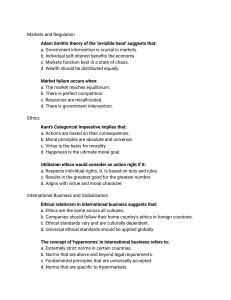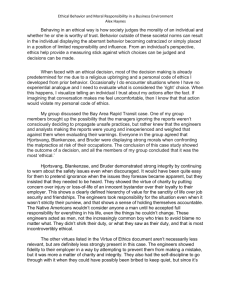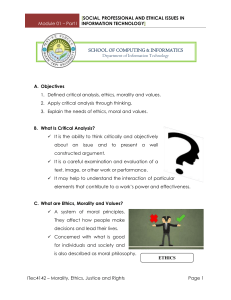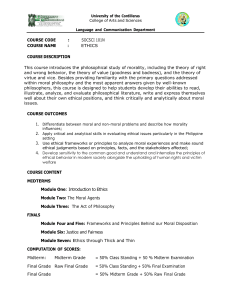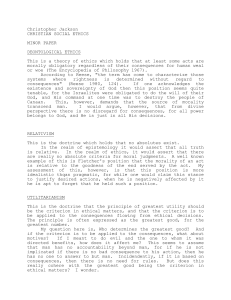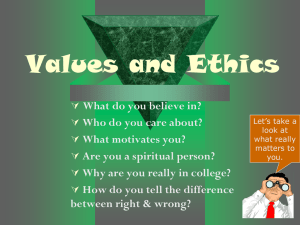Character Ethics & Moral Quandries
advertisement
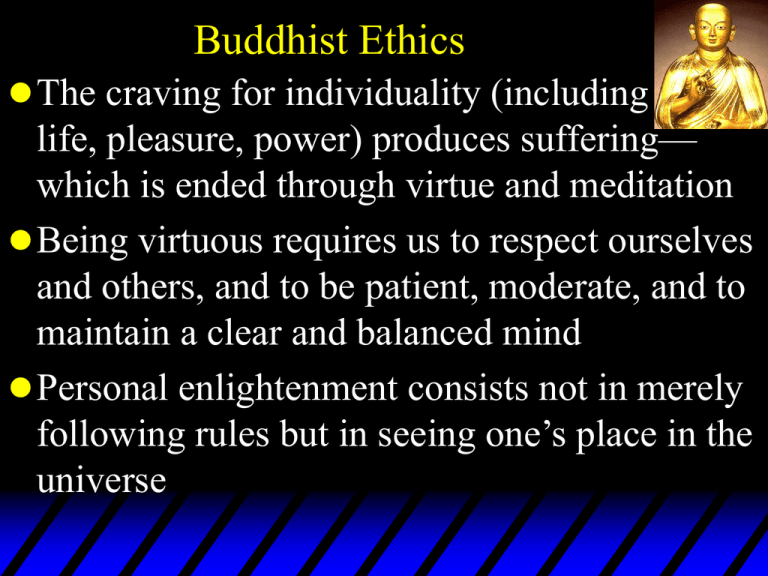
Buddhist Ethics The craving for individuality (including life, pleasure, power) produces suffering— which is ended through virtue and meditation Being virtuous requires us to respect ourselves and others, and to be patient, moderate, and to maintain a clear and balanced mind Personal enlightenment consists not in merely following rules but in seeing one’s place in the universe Challenges to Ethical Theorizing: Anti-foundationalism Morality is not a pursuit of abstract principles; it is an attempt to give our lives order. This requires that it assumes changeable values Instead of discussing morality in terms of acts or judgments based on rules or principles, we should focus on developing a good character or maintaining personal relationships Virtue Ethics (Aristotle) To be moral means being sensitive to the social and personal dimensions of life “Rational” actions are not based on abstract principles but on moderation (golden mean) – Objection: this does not provide the specific moral guidance needed in difficult situations Feminist Ethics Carol Gilligan Morality Nel Noddings is not about abstract principles, rights, or impartial (typically male) theories of justice, but about caring for persons and maintaining relationships (Gilligan) The (feminine) virtue of caring for others in specific situations is the basis upon which all ethical thinking is grounded (Noddings) Implications Different ethical theories highlight different features of moral situations. For example: Abortion: what makes a being morally significant? whose interests need to be considered? what impact will the decision have on the development of one’s character? Euthanasia: is life always better than death? should consequences or how we would like to be treated influence our judgments?


